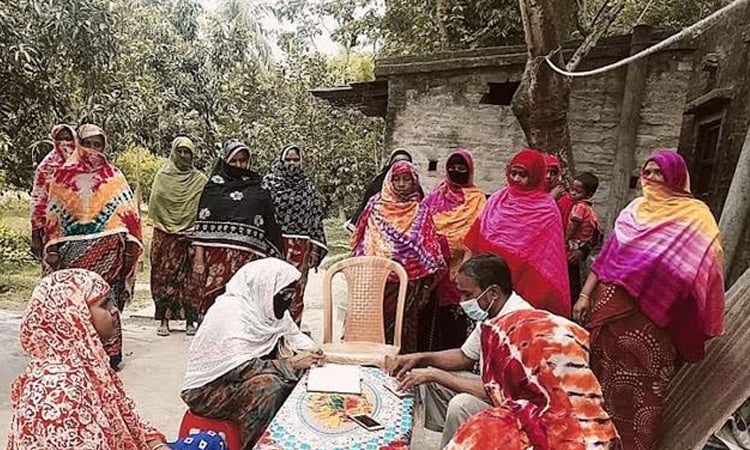News Flash


By Md Aynal Haque
RAJSHAHI, Nov 11, 2025 (BSS) - Cooperatives are helping thousands of people, particularly women, in urban and rural areas of Rajshahi division to improve their living standards by encouraging small, regular savings and providing low-interest loans for income-generating activities.
Joint Registrar of the Department of Cooperatives Mukhlesur Rahman said the department is working relentlessly to enhance the socio-economic condition of people by organizing them under cooperative societies.
Talking to BSS on Monday, he said cooperatives give members access to resources, markets and financial services that would otherwise remain out of reach individually.
There are around 10,000 cooperative societies across 67 upazilas in the eight districts of Rajshahi division, with nearly 15 lakh members. They have built up effective capital worth about Taka 1,600 crore and mobilized deposits of Taka 465.23 crore to date.
Around 24,491 people, including 9,774 women, have found employment through these cooperatives. In the past three years, 31,608 members have received training in various trades such as driving, graphic design, mobile servicing, electrical and electronic works, and other income-generating fields.
Members were also trained in advanced computing, project planning, office management, and public procurement, while 19,274 others received training through mobile programmes during the same period.
Cooperatives have been providing education, training and technical support in modern farming and business management to enhance members' skills and promote self-reliance, particularly in rural areas.
A project titled "Livelihood Development of Underprivileged Women through Rearing Improved Cows" is being implemented in 12 cooperative societies across six upazilas of four districts, under which 2,891 women have received loans totaling Taka 33.47 crore.
Another project - "Extension of Milk Cooperative Activities in Milk-Deficit Upazilas" - has disbursed Taka 5.90 crore in loans among 301 cooperative members in Chapainawabganj, Naogaon and Pabna districts.
In Rajshahi division, 115 water management cooperatives have distributed loans worth Taka 76 crore among 64,635 members.
One of the many success stories is Rozina Begum, 38, of Khoira village in Mohanpur upazila, who has become self-reliant by producing vermicompost fertilizer with the support of her husband Abu Bakkar. The couple established a small organic fertilizer factory at home, and vermicompost has now gained popularity in the region.
Rozina said only earthworms and cow dung are used to produce the fertilizer, which helps protect the environment, maintain soil fertility, increase crops' disease resistance and boost yields.
Another cooperative member, Suborna Khatun, 45, from Bidirpur village in the same upazila, has become an example of empowerment through cooperatives.
"I took Taka 15,000 as my first loan from Ghashful Mohila Somobai Samity in 2016," she said. "Now I'm involved in homestead gardening, poultry rearing, beef fattening and potato farming. I've learned how to become self-reliant and contribute to society."
She added that cooperative activities have taught villagers to support one another and work together to overcome hardship.
Similarly, Shefali Tudu, 42, a member of Mundumala Mohila Somobai Samity in Tanore upazila, has brought prosperity to her four-member family through homestead gardening.
"We've been producing chemical-free vegetables using vermicompost and selling the surplus in the local market," she said, adding that demand for organic produce is high and villagers willingly pay better prices.
Shefali grows red leafy vegetables, bottle gourd, carrot, snake gourd and napa shak on 40 decimals of land using bio-fertilizer. "Buyers now come to my home to purchase vegetables," she said. "If more farmers adopt vermicompost-based cultivation, it will meet the growing demand for chemical-free food."